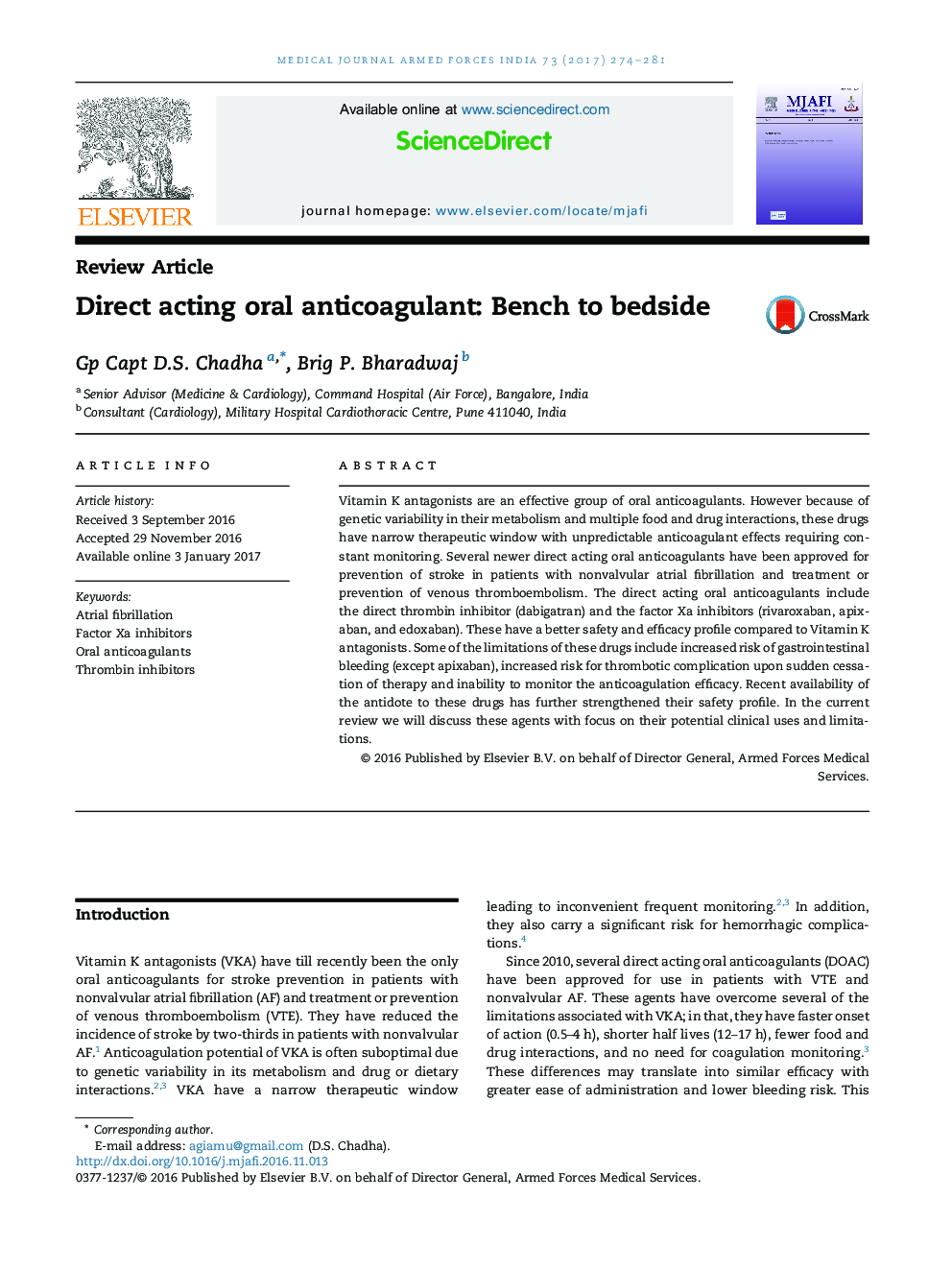| Article ID | Journal | Published Year | Pages | File Type |
|---|---|---|---|---|
| 5642166 | Medical Journal Armed Forces India | 2017 | 8 Pages |
Vitamin K antagonists are an effective group of oral anticoagulants. However because of genetic variability in their metabolism and multiple food and drug interactions, these drugs have narrow therapeutic window with unpredictable anticoagulant effects requiring constant monitoring. Several newer direct acting oral anticoagulants have been approved for prevention of stroke in patients with nonvalvular atrial fibrillation and treatment or prevention of venous thromboembolism. The direct acting oral anticoagulants include the direct thrombin inhibitor (dabigatran) and the factor Xa inhibitors (rivaroxaban, apixaban, and edoxaban). These have a better safety and efficacy profile compared to Vitamin K antagonists. Some of the limitations of these drugs include increased risk of gastrointestinal bleeding (except apixaban), increased risk for thrombotic complication upon sudden cessation of therapy and inability to monitor the anticoagulation efficacy. Recent availability of the antidote to these drugs has further strengthened their safety profile. In the current review we will discuss these agents with focus on their potential clinical uses and limitations.
